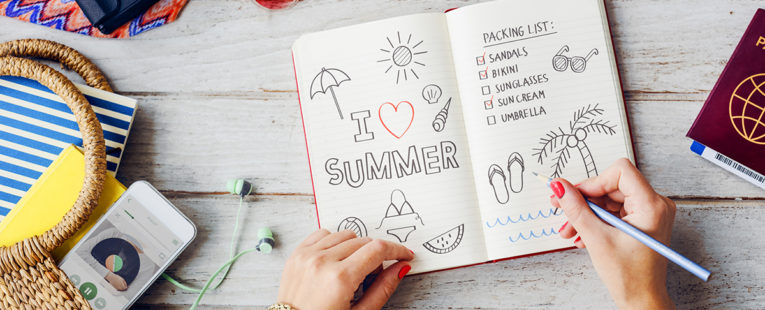There is nothing more exciting than packing for your upcoming vacation.
You can see it now – laying on the beach, hiking up a majestic mountain or sightseeing in a beautiful city.
Most vacation packing lists usually have sunscreen, comfortable shoes, swimsuits or the like listed on them, but one essential thing that’s missing from most lists is your health history information that can be easily accessed.
Let’s face it – the last place you want to be on vacation is in the emergency room. But it’s best to always be prepared for the worst case scenario.
Download our MyChart app today.
Here are some questions to ponder: Could you give yours or your child’s medical history if needed? What if you weren’t able to speak and needed medical attention? How prepared are you?
There are several ways you can be prepared for an emergency situation on your vacation. First, you should be able to give the important pieces of your medical history. For example, you should know if you have any medical conditions and what surgeries you have had. You should be able to list your medications, dosages and allergies.
“Having your comprehensive health history helps providers identify what is going on or what they need to be concerned about in an emergency,” said Kristi Ryan, Adult Congenital Heart Advanced Practice Nurse at OSF HealthCare Children’s Hospital of Illinois. “This may help prevent unnecessary testing or a prolonged wait for the correct treatment you need.”
Be prepared
There are many ways to keep your medical information readily available. Here are a few suggestions:
- OSF MyChart – secure online access to your health history information and a list of your test results for OSF HealthCare patients. To sign up, visit osfmychart.org or download the app through the App Store or Google Play.
- Medical alert bracelet or necklace – provides a small amount of information quickly by listing any health condition or allergy you might have.
- Tools on your smart phone – the iPhone comes with the Health app. The app allows you to put medical information about yourself and an emergency contact person into the app. Then, the information can be accessed by the button that says “emergency” on the password screen without having to type your password in.
Another essential packing list item? Your insurance card.
“Bringing your insurance card with you helps you get the best care as quickly as you can,” Kristi said. “The last thing you need to worry about is how you are going to pay out of pocket for an emergency situation. If you are traveling outside of the country – or sometimes even state – it’s a good idea to understand if your health insurance covers any medical care there.”
Know your limits
“Have fun and live life to the fullest, but know what your limitations are,” Kristi said. “Be sure to discuss with your primary care doctor or specialty doctors what activities you would like to do so that they can help you decide if they’re safe for your health. This also puts your mind at ease when you get to your destination.”
Last Updated: February 9, 2022
